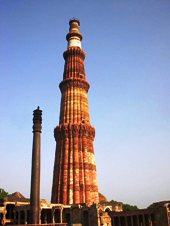 The Union government will be forming a shell company with the state governments of Delhi, Uttar Pradesh, Haryana and Rajasthan to take the National Capital Region to the next stage of inter-city transportation. A memorandum of understanding is expected to be signed shortly, to be followed by registration of the company.
The Union government will be forming a shell company with the state governments of Delhi, Uttar Pradesh, Haryana and Rajasthan to take the National Capital Region to the next stage of inter-city transportation. A memorandum of understanding is expected to be signed shortly, to be followed by registration of the company.
The shell company will be installing dedicated rail links between Delhi and NCR cities for fast movement, at an estimated cost of Rs 5,000 crore or Rs 50 billion (excluding rolling stock) on the lines of the Mumbai suburban rail system.
The project will include laying of dedicated tracks, property development to part-fund the cost and connectivity with other modes of transport.
The three links finalised for being taken on by the proposed company, based on ridership estimates, are Delhi-Ghaziabad-Meerut, Delhi-Gurgaon-Rewari-Alwar and Delhi-Sonepat-Panipat.
While Gurgaon, Noida and Ghaziabad that adjoin Delhi are already being linked by a metro link with the Capital, places like Panipat, Sonepat, Alwar and Meerut, will be connected to Delhi through the proposed railway system. The rail links will integrate with the metro network that has already come up in the city.
A task force under Union urban development secretary M Ramachandran and with representation from the ministries of road transport and highways and railways, besides the four state governments, has recently given a report on the proposed rail systems.
The NCR Planning Board has taken up the report.
"Approval from all the governments will be taken for capital investment so that a company can be registered. Once the company is formed, a detailed project report to work out the exact cost will be commissioned," Ramachandran told Business Standard.
Explaining the concept, the secretary said since it was not cost-effective to extend metro systems to cities that are far from Delhi, dedicated railway lines would be laid parallel to the existing rail links which currently serve both the long-distance and inter-city trains.
The railway tracks will be dedicated and the Railways will decide whether the existing DMUs and EMUs that run between Delhi and these cities will operate on the existing tracks or the new ones.
He said issues like financing, availability of land along the existing tracks and integration of the system with the metro network needed to be examined.
"Besides, we have to see whether these trains should terminate at the existing railway stations or the metro stations can be used for the purpose," added Ramachandran.
Image: Qutab Minar






